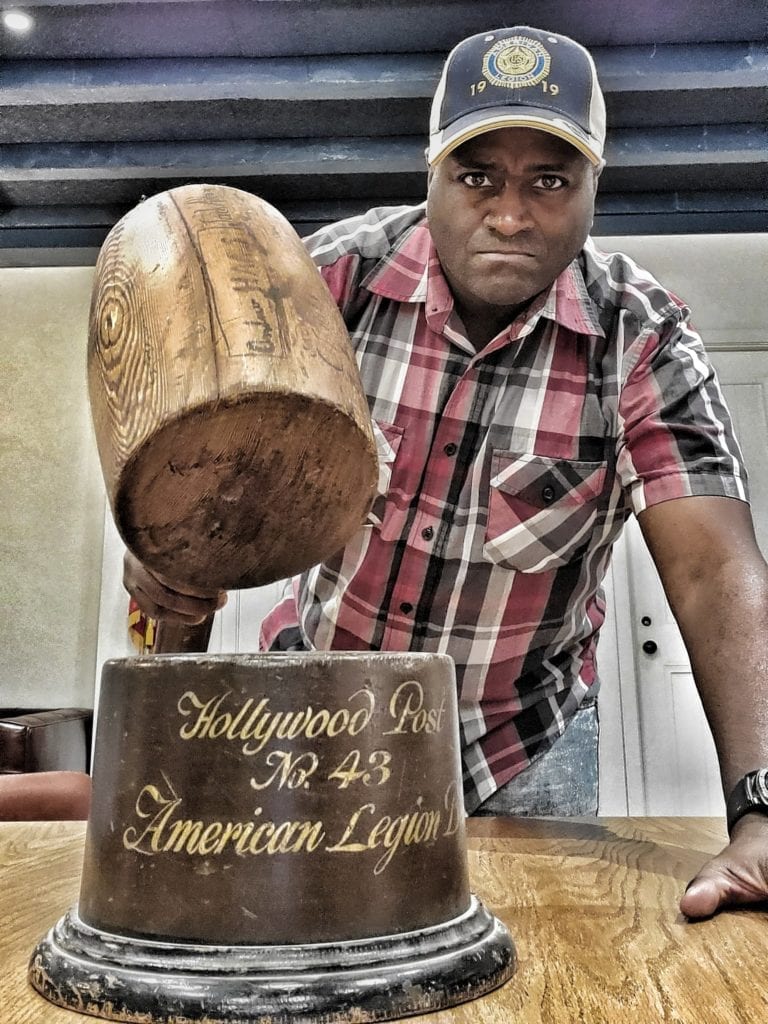
American Legion Hollywood Post 43’s Jeff Daly wields a rather large gavel.
A well run American Legion meeting follows Robert’s Rules of Order. The better a legionnaire understands Robert’s Rules, the more productive they can be in a meeting.
In this segment, we will look at a rule that you may not know, or perhaps one you have witnessed being used incorrectly. Today we will look at “Call For The Question” or “Move The Previous Question.” We will separately consider what a “Point of Privilege” is.
Calling for the question or moving the previous question is a motion that is intended to end debate and get to the vote. It is often used improperly. Robert’s Rules is clear on how this type of motion is to be made.
One can not interrupt the speaker and must be recognized by the chair before making this motion, which must also be seconded. The mere act of making the motion does NOT end debate, nor does the second.
A vote has to be taken and there is no debate allowed. The vote to end the debate must be passed with a 2/3 majority or debate resumes.
A common, but improper use of this motion, violates two parts of the rule. One, the person seeking to end debate interrupts the speaker without being recognized by the chair. If this happens in your presence, you should call a “Point of Order” for the procedural error.
The second improper application of the rule is the misunderstanding that the mere calling for the motion is all that is required to end debate and force an immediate vote. If this error is made, again, you can invoke a point of order and request that the chair call for a vote, according to Robert’s Rules. That vote must be a 2/3 majority, to end the debate.
As noted, a point of order question can interrupt the speaker. Another question that can be made and interrupt the meeting, is the “Point of Privilege.” This is used to make a complaint about something that is disruptive to the meeting like noise or the room temperature. There is no second needed to make this point. There is no debate and no vote. The chair decides how to handle issue warranting a point of privilege.
There are two types of point of privilege question. The second is a “Personal Point of Privilege” for a question that only affects one member and not the group. This question can also interrupt the speaker, but the chair must decide if the personal point of privilege is urgent enough to cede the floor to the questioner, or if it can wait.
If you would like to delve deeper into these or other Robert’s Rules of Order, there are resources online. You can also purchase the book from Emblem Sales or retailers like Amazon. If you use Amazon, please consider using the Department of California Amazon Smile account so a portion of your purchase will benefit its Veterans Affairs and Rehabilitation program.
It’s not a “rule,” but it would be really helpful.












